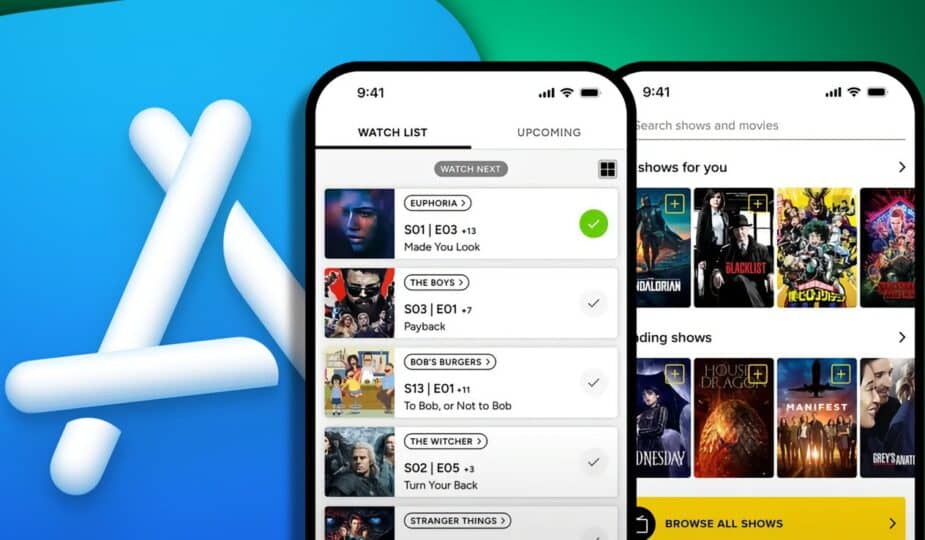TV Time and the App Store icon
 0 Facebook x.com Reddit
0 Facebook x.com Reddit
The developers of two media-focused apps claim that Apple is playing unfair with the App Store, especially when it comes to enforcing copyright laws.
As the controller of the App Store, Apple has a duty to maintain a digital marketplace full of compelling apps that don’t violate or infringe laws. But the amount of control Apple has over apps and its ability to easily reject apps over claims of copyright infringement has irked some developers.
With TV Time and Musi, Apple seems a little too eager to swing the banhammer.
TV Time’s User-Generated Troubles
On November 1, TV Time reported on X that it was aware that its app had stopped appearing in the App Store. At the time, it added that it was working with Apple to get it back on the store.
On Wednesday, TechCrunch intervened, and Apple reinstated TV Time’s App Store listing. It turns out the app had been removed for copyright infringement, but not intentionally.
TV Time allows users to track their TV show viewing, including sending them to streaming apps to watch their desired content. However, the app also allowed users to post images and animated GIFs of their favorite shows to built-in communities.
Jerry Inman, chief marketing officer for TV Time owner Whip Media, explained that it was caused by a mishandled intellectual property infringement complaint, which the app routinely faces. After users uploaded TV show and movie covers to the app, the company claimed there was copyright infringement and issued a DMCA notice.
The app responded by asking for proof of ownership, which was not provided, but it removed the images anyway. The plaintiff also demanded a financial settlement, which is not in compliance with the DMCA, and Whip Media refused to pay it.
The plaintiff then notified Apple that the claim was “unresolved,” Inman says, which then led to Apple removing the app.
While Whip Media and the plaintiff have since resolved the issue, there are still concerns that Apple has too much control.
“Apple wields significant power over app developers, controlling access to a huge market, and in this case appears to have acted on the complaint without requiring the plaintiff to provide hard evidence,” Inman said.
Musi's copyright is uncertain
In September, Musi was removed from the App Store following another copyright complaint.
The music streaming app Musi did not stream music directly from its servers, but instead relied on YouTube. Users received music hosted on YouTube's servers, meaning Musi could avoid paying for song licenses.
After numerous complaints, including from YouTube itself, the app was removed from the App Store.
On Tuesday, Ars Technica reported that Musi users wanted to keep the app. If the app was dumped in an update or a user got a new phone, they couldn’t redownload the app.
Some users found that the app was dumped after an update, with no way to download it again. Others have since decided not to update their devices so they could keep their app.
To complicate matters, Musi sued Apple in October in an attempt to force it to restore the app to the App Store. The goal was to keep the app active while the developer deals with copyright claims.
Musi believes Apple acted wrongfully, breaching its contract by removing the app before investigating YouTube’s claims.
However, the lawsuit could mean Musi will be in courtroom limbo for quite some time. The hearing on the injunction to reinstate Musi will not take place until January, and this could lead to an even longer delay before his reinstatement if the court agrees.
While Musi is detained, he is concerned that he will lose revenue by not being available for download. In a filing challenging the injunction on Friday, Apple said fans who have the app installed can still stream and use the service, so the lack of listing will not kill the app entirely.
Apple is also concerned that granting the injunction could make Apple more accountable for fighting copyright infringement. The company insists that while it is trying to remain neutral and not take sides, Apple should not be expected to use resources to investigate every single copyright notice it receives.
“The public interest in preserving intellectual property rights is substantially opposed to the injunction sought here,” the objections read, “which would force Apple to distribute the App despite repeated and consistent objections from non-parties who claim that their rights are infringed by the App.”
A Very Long-Term Problem
As a very large company that operates one of the largest digital storefronts in the world, Apple is under a lot of pressure. Naturally, it becomes a big target when there is a complaint that someone feels it should resolve on its behalf.
Part of the problem is the sheer volume of complaints it receives about App Store content. It has to deal with thousands of complaints and claims about App Store apps filed by third parties, not its own internal team.
To fully investigate each complaint and determine whether it is valid, Apple would have to dedicate a lot of its resources. For a task where it will not benefit from the effort, the investigation is not worth the company's time unless it is facing a serious financial threat.
That's why you see so many references in the App Store Review Guidelines that an app can be removed from the App Store for a variety of reasons. In these cases, in particular, it would fall under Section 5.2, Intellectual Property, which requires apps to obtain licenses for the content they use.
Apple is not obligated to remove the apps, but faced with the prospect of a lawsuit from a copyright owner, it is much easier for Apple to remove them just in case.
It is likely that Apple could have gone the extra mile when it came to complaints. It could have contacted TV Time's developers to ask about the complaint before simply moving forward with the removal, but it chose not to.
In many cases, it's probably justified for Apple to take down an app, especially in extremely obvious cases of copyright infringement. But sometimes it's worth Apple taking a little time to quickly check that an app is working before taking it down.
Follow AppleInsider on Google News









